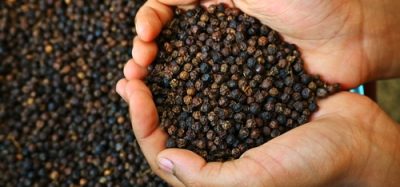Daily meat consumption falls in the UK, new research reveals
- Like
- Digg
- Del
- Tumblr
- VKontakte
- Buffer
- Love This
- Odnoklassniki
- Meneame
- Blogger
- Amazon
- Yahoo Mail
- Gmail
- AOL
- Newsvine
- HackerNews
- Evernote
- MySpace
- Mail.ru
- Viadeo
- Line
- Comments
- Yummly
- SMS
- Viber
- Telegram
- Subscribe
- Skype
- Facebook Messenger
- Kakao
- LiveJournal
- Yammer
- Edgar
- Fintel
- Mix
- Instapaper
- Copy Link
Posted: 8 October 2021 | Joshua Minchin (New Food) | No comments yet
The decrease is not moving quick enough to keep up with targets set by the National Food Strategy however, which has recommended meat consumption fall by 30 percent in the next decade.


Daily meat consumption in the UK has fallen by 17 percent over the past decade, according to a new study published in The Lancet Planetary Health.
The speed of the decrease is not enough according to some though, after the UK’s National Food Strategy (the second part of which was published earlier this year) recommended that UK meat consumption fall by 30 percent over the next ten years.
“We now know we need a more substantial reduction,” lead researcher Cristina Stewart from the University of Oxford told the BBC.
The research team used data from the National Diet and Nutrition Survey, which recorded the eating habits of just over 15,000 people. The study revealed that daily meat consumption had decreased by around 17g per person per day.
The effect meat has on the environment is well-documented – indeed it is often one of the most popular reasons cited for transitioning to a plant-based diet.
However, the health impact of meat, and in particular red meat, is also of concern to many. “While it’s encouraging to see more people are starting to eat less red and processed meat, we know that some people are still eating more than the recommended maximum of 70g per day, putting them at greater risk of developing heart and circulatory diseases,” Victoria Taylor, senior dietitian at the British Heart Foundation told The Guardian.
“We need to look beyond meat to benefit from the full range of protein sources available to us. Including plant-based proteins like beans, lentils, nuts and seeds, or using these to bulk out meat dishes can be a healthy way to cut down on the amount of red and processed meat you are eating.”
There is also concern from others that although the decrease in meat consumption may be a nutritionally positive move, there is no information on what those 17g per day have been replaced with.
“Something to celebrate or to wonder what nutrient bereft high calorie ultra-processed junk it has been replaced with?” asked Professor Chris Elliott via Twitter.
UK not eating as much meat as before. Something to celebrate or to wonder what nutrient bereft high calorie ultraprocessed junk it has been replaced with? https://t.co/pCzXTc4l3p
— Prof Chris Elliott OBE (@QUBFoodProf) October 8, 2021
“Hopefully this paper will help us understand the patterns and trends so we can tailor public health policies and behavioural nudges to help people choose more sustainable options,” added Dr Stewart.
Time will tell whether this trend continued and meat consumption continues to be driven down, or whether the speed of progress remains slow and targets missed.
Related topics
Environment, Health & Nutrition, Research & development, Sustainability, The consumer
Related organisations
BBC, The Guardian, The Lancet Planetary Health, University of Oxford









